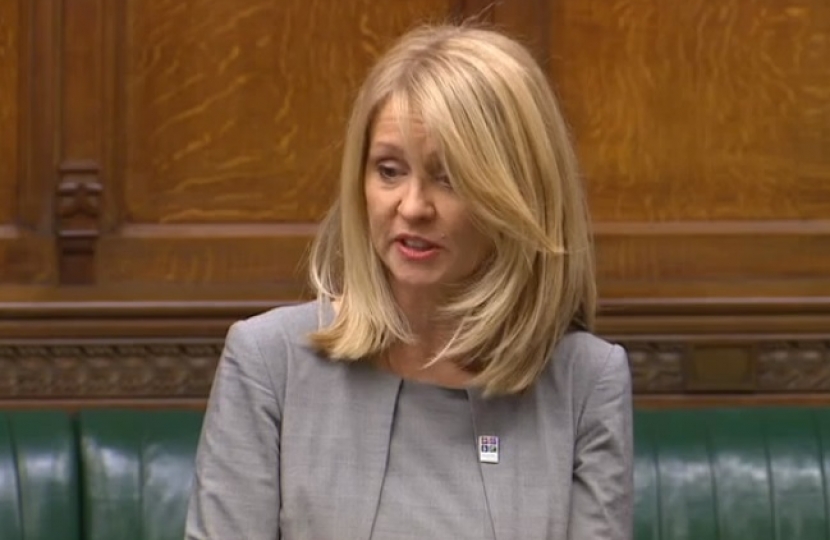
Ensuring every child receives a decent education and no young person is left behind is vital to delivering the Government’s levelling up agenda, Esther McVey has said.
It is feared tens of thousands of children are missing from school following Covid but the Tatton MP believes that is part of a much-wider problem within the education system.
She wants a national children’s register in place to ensure everyone is accounted for, and it to be recorded if a pupil is receiving a state or private education or are home educated. This register would then highlight children missing out on an education and ensure action was taken.
As it stands Local Authorities have a duty to put in place arrangements for identifying those children of compulsory school age in their area who are not registered or receiving suitable education – but this guidance from Government is non statutory – meaning there is no requirement on councils to do it.
Ms McVey said: “If you do not know the size of a problem, it is impossible to deal with it. We could have a situation where tens of thousands of young people are not getting an education and that will inevitably affect their life chances later. The figure could be higher the fact is no one knows. I am passionate about social mobility and if Government is committed to its levelling up agenda, we need to get a grip on this issue and know where our children are, what education they are receiving and who is missing out.
“It is not about where they are being educated but ensuring everyone has an education. There needs to be a system in place which tracks the individual throughout their school life. Ensuring every child gets a good education is the foundation for their future so why does Government not think it important enough to make this data statutory so we can get a grip on the issue?”
According to official figures there were nearly 100,000 children or young people who spent more time out of school than in school between September and December last year.
But Ms McVey said this issue goes beyond the pandemic and generations of young people are being let down by a system failing to register where they are or why they are not in school.
A national register would see any child moving school from either a neighbouring school or a different area, recorded as being at a new institution, to ensure a continued education. It would end children being taken out of school and unaccounted for.
Long term it would ensure children identified as needing additional support received the help they needed and would reduce the numbers of young people not in education, employment, or training (NEETS).
Figures on student absenteeism are produced by the Department for Education, along with percentages of school take up places, but Ms McVey said this data is inadequate as it is not granular.
She added: “It is no good a local authority reporting a percent age take up of school places and numbers for those who did not as the whole point is to ensure children get an education and you cannot do that without the details of the child. We need very detailed information which will identify a child and ensure that child gets the help they need. A child is not just a number and to give headline figures is no good.”
According to the House of Commons library, Government has no current plans to introduce a children’s register.

